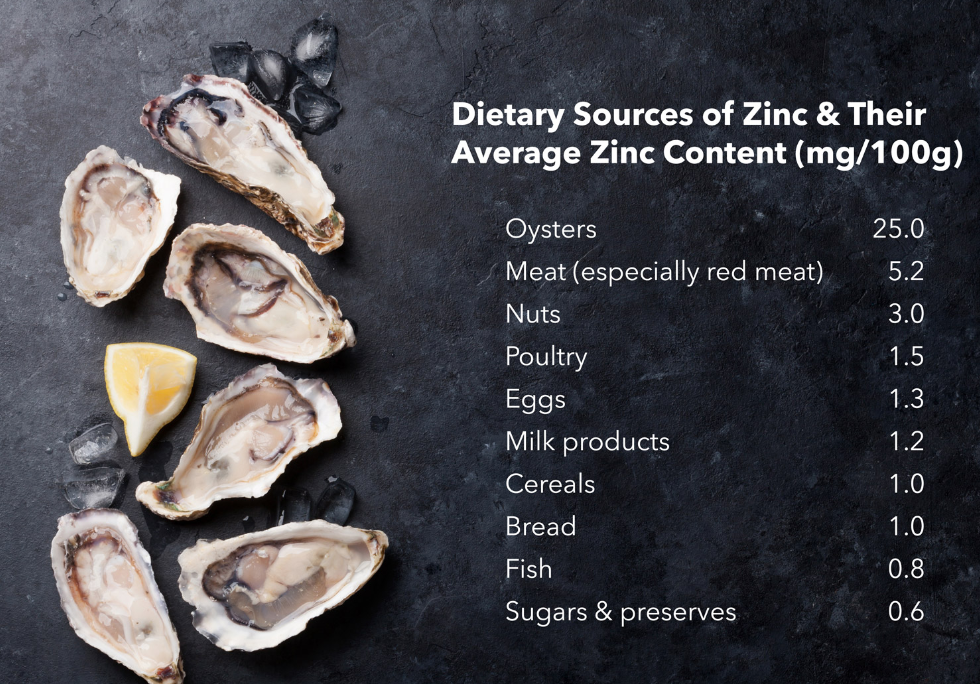
Daily supplementation with zinc picolinate markedly reduced the prevalence of severe symptomatic COVID-19 among a cohort of high-risk patients in the state of Florida, according to data from a new case-control study.
“Individuals in the control group were 5.93 times more likely to develop symptomatic COVID-19 infection as compared with individuals in the treatment group,” reported lead author Antonio M. Gordon, of the Department of Internal Medicine, University Health Care, Hialeah, FL.
“Controlling for co-morbidities, individuals in the control group were 7.38 times more likely to develop symptomatic COVID-19 infection as compared with individuals in the treatment group.”
“The findings from our study suggest that zinc supplementation in all three doses (10, 25, and 50 mg) may be an effective prophylaxis of symptomatic COVID-19 and may mitigate the severity of COVID-19 infection.”
Antonio M. Gordon, MD, University Health Care, Hialeah, FL
The study involved 104 patients seen at ambulatory primary care clinics, who were randomized to take 10, 25, or 50 mg of zinc daily, and another 96 patients of similar demographic background who did not take zinc.
A High-Risk Cohort
All patients were from communities with COVID infection prevalence of 100 cases per 100,000 or greater. Just over 60% of the subjects were female, and 90% were of Hispanic ethnicity, in keeping with the general demographics of the neighborhoods served by the clinics, which are located in Miami-Dade and Broward counties. The age range was between 58 to 84 years, with a median of 74 years.
The overwhelming majority had preexisting conditions: 88% of zinc group, and 97% of controls had cardiovascular disease; 37% and 45% had diabetes; 53% and 38% had COPD. Two patients in the zinc group had prior bouts of symptomatic COVID.
The investigators looked at new symptomatic COVID episodes after a five-month study period from August 2020 until January 2021.
In the zinc group, there were 2 COVID cases (1.92%) versus 10 (10.42%) among the control group (p = 0.015).
“The findings from our study suggest that zinc supplementation in all three doses (10, 25, and 50 mg) may be an effective prophylaxis of symptomatic COVID-19 and may mitigate the severity of COVID-19 infection,” the authors write (Gordon AM, Hardigan PC. Front Med. 2021). There were no meaningful differences in terms of COVID prevalence or severity between the three zinc dosages.
Safe and Effective
In general, zinc picolinate appeared to be very safe, though during the first 4 weeks of monitoring, five participants experienced intolerable adverse effects: two had headaches potentially attributable to zinc (one on 25 mg, the other on 50 mg); three had GI symptoms including nausea and constipation.
In addition to bolstering support for prophylactic use of zinc, this study also sheds light on the degree to which pre-existing conditions raise COVID risk. Statistically, for every-one unit increase in the number of co-morbidities a subject had, the likelihood of developing symptomatic COVID-19 infection increased by a factor of 1.57. This means that someone with 3 chronic conditions is nearly five times more likely to develop a serious COVID case as someone with no prior diagnoses.
This study makes a good case for prophylactic use of zinc picolinate, but the authors stress that their data cannot be extrapolated to support use of oral zinc as a treatment.
Though the study was not intended to elucidate mechanisms of action, the authors surmised that zinc is, “a modulator of immune functions, a modifier of the interaction of SARS-CoV-2 with a host factor such as an angiotensin-converting enzyme (ACE)-2 receptor, or the integrity of the epidermal tight junctions, or even an agent capable of acting in the microbiome.”
Metanalysis: Zinc Effective Against URIs
The Gordon paper, published last December, followed closely on the heels of a new metanalysis of 28 clinical trials showing that oral or intranasal zinc supplementation can mitigate the incidence and severity of viral upper respiratory infections.
Compared with placebo, oral or intranasal zinc prevented five non-COVID respiratory infections per 100 person-months. The number needed to treat (NNT) to obtain this statistically significant benefit was 20, reported Jennifer Hunter and colleagues in the November 2021 edition of the online journal, BMJ Open. They rated the quality and certainty of evidence supporting this conclusion as “moderate.”
Dr. Hunter, a faculty member at the NICM Health Research Institute, Western Sydney University, led an international team that sifted and weighed data from 28 English and Chinese studies of zinc published between April and August 2020. NICM is one of Australia’s leading centers for research in integrative medicine.

Papers included in the metanalysis looked at the impact of oral, sublingual, or intranasal zinc versus placebo in people with lab-confirmed viral RTIs, or non-specific illnesses such as the common cold, non-seasonal rhinosinusitis, pharyngitis, laryngitis, influenza-like illness, or acute bronchitis.
In aggregate, the trials represented 5,446 adults unlikely to be zinc-deficient. Dr. Hunter’s team followed Cochrane protocols for data analysis.
They included randomized and quasi-randomized controlled trials, but excluded prior systematic reviews, non-randomized studies, and trials lacking concurrent control groups. They also excluded 95 studies of children, and studies of adults with bacterial and other non-viral infections.
This metanalysis did not include any COVID-specific data. There are currently seven randomized clinical trials underway looking at zinc in the context of COVID.
Meaningful Benefits
The interventions under review included a variety zinc conjugates, at varying doses, treatment durations, and administration routes, but excluded co-interventions involving other nutraceuticals, herbs or pharmaceuticals.
Overall, patients who took zinc supplements had a 32% lower relative risk of developing mild to moderate RTI symptoms compared to those taking placebo controls.
Lozenges were the most common form of zinc tested, followed by nasal sprays, and gels containing either zinc acetate or gluconate salts. Daily doses ranged from 15 mg to 45 mg for treatment periods of between 7 and 12 months.
Doses for sublingual lozenges aimed specifically at preventing or treating rhinovirus infections were higher, ranging from between 45 mg and 300 mg daily. Doses for topical nasal zinc to prevent or treat community-acquired infections were substantially lower (0.9–2.6 mg/day)
In aggregate the studies do suggest a modest but meaningful benefit from taking zinc. Overall, patients who took zinc supplements had a 32% lower relative risk of developing mild to moderate RTI symptoms compared to those taking placebo controls.
“In adult populations unlikely to be zinc deficient, there was some evidence suggesting zinc might prevent RTI symptoms and shorten duration,” the authors note, though they add that “the comparative efficacy/effectiveness of different zinc formulations and doses were unclear.”
Reduced Severity
The largest risk reductions were for moderately severe symptoms such as fever, consistent with an influenza-like illnesses. There was an 87% lower risk of developing moderately severe symptoms compared with a 28% lower risk of developing milder symptoms. Hunter and colleagues found no significant differences based on patient age, route of zinc administration, or dose levels.
The data suggest that people who take zinc have faster symptom resolution. With sublingual or intranasal zinc, symptoms resolved 2 days earlier compared with placebo. During the first week of illness, participants using sublingual or topical nasal zinc were 1.8 times more likely to recover before those on placebo, Hunter and colleagues report.
However, they include the caveat that the data on symptom resolution were spotty and of “low certainty/quality.”
There were significant reductions in Day 3 symptom severity scores among people taking zinc, though there were no differences in average daily severity scores.
One interesting finding was the observation that duration of illness could be reduced in people who began taking zinc up to 3 days following onset of symptoms. This contradicts the widely held—though largely unsubstantiated—idea that zinc will only work if taken within 24 hours of symptom onset.
Worldwide Popularity
Though it did not include any COVID-specific data, Hunter and colleagues point out that they undertook this metanalysis following a World Health Organization call for rapid reviews of evidence for various popular self-care modalities for COVID-19.
Across the world, zinc is among the most widely consumed supplements for colds and flu, and for immune system support. A 2019 paper by Katharine DeGeorge and colleagues in the journal, American Family Physician, cites zinc among “treatments with proven effectiveness for cold symptoms in adults.”
It should be no surprise that zinc has gained considerable attention since the outbreak of COVID. In high-income as well as low-income countries, sales have soared since the pandemic began.
Though zinc is not recognized officially in any COVID prevention or treatment guidelines, Hunter and co-authors point out that clinicians and hospitals worldwide are using it in the COVID context.
Duration of illness could be reduced in people who began taking zinc up to 3 days following onset of symptoms. This contradicts the widely held—though largely unsubstantiated—idea that zinc will only work if taken within 24 hours of symptom onset.
Over the years, several mechanisms have been proposed to explain the apparent efficacy, including direct broad-spectrum antiviral activity against many common respiratory viruses—including coronaviruses. Zinc also plays a role in multiple immunological and inflammatory pathways, and assists in tissue responses to hypoxia.
Generally, zinc supplements are quite safe. There were no serious adverse events associated with the mineral in the 25 trials under review. That said, some people do find oral consumption of zinc to be irritating to the mouth and nose, or even nausea-inducing. This can limit its utility in some cases.

Growing Base of Evidence
This new metanalysis follows two other fairly recent reviews of zinc in the context of respiratory infections. Wang and colleagues published an analysis of 20 micronutrient studies—10 specifically on zinc—showing a 2.25-day reduction in duration of cold symptoms (Wang MX, et al. Am J Tropical Med Hygeine. 2020).
A review by Aboiye and colleagues in BMJ Global Health early in 2021 concluded that zinc reduced duration of ARI symptoms by nearly 50%, though it did not reduce the actual risk of ARI (Abioye AI, et al. BMJ Global Health. 2021).
The Hunter paper included significantly more studies than its predecessors, thanks to the fact that the researchers combed non-English databases for relevant trials.
Though their findings are generally positive, Hunter and colleagues are careful not to overstate their conclusions. They acknowledge the limited quality of evidence in some of the included studies, as well as a fairly high risk of bias. There was also inconsistency among the included trials, in terms of forms of zinc studied, doses and treatment durations, effect sizes, and methods for measuring outcomes.
On the other hand, zinc products are safe, inexpensive, and readily available. Given the ongoing threat of COVID, and the dangers of inappropriately prescribed antibiotics for URIs, zinc supplements are an option worth considering.
Minimum therapeutic doses and minimum treatment time frames for zinc have yet to be scientifically established in the context of ARI.
All of this leaves clinicians to face a lot of unanswered questions around the practical aspects of using zinc to treat patients.
On the other hand, zinc products are generally safe, inexpensive, and readily available. Given the ongoing threat of COVID, and the dangers of inappropriately prescribed antibiotics for URIs, zinc supplements are an option worth considering.
END







